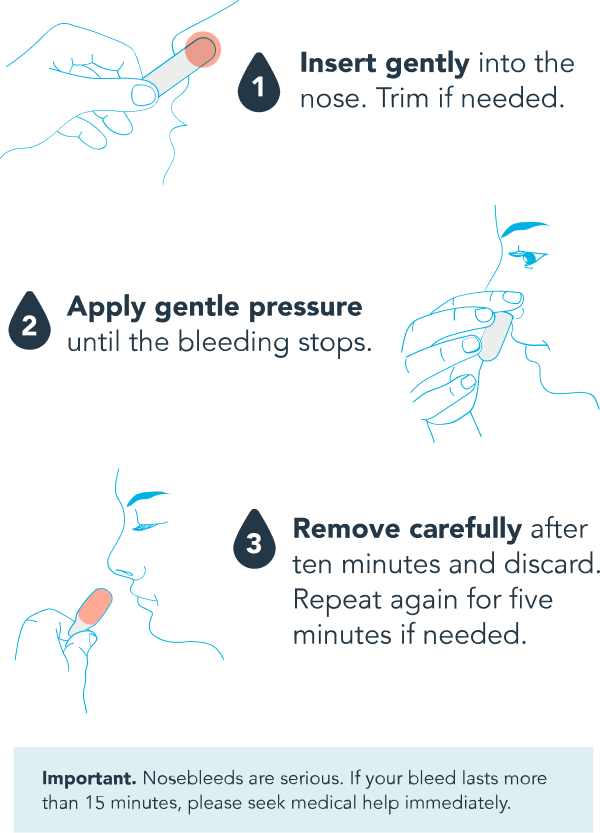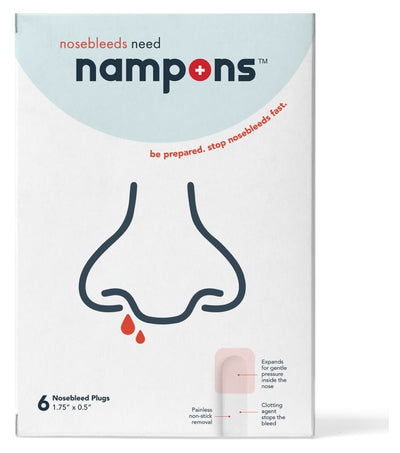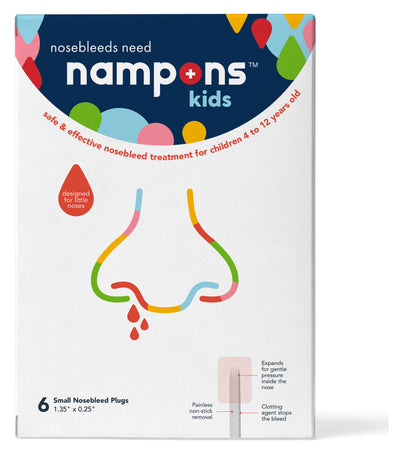Causes, treatment & prevention of nosebleeds during pregnancy
On top of everything else you need to deal with, an increase in nosebleeds is a very common part of pregnancy. In most cases, nosebleeds are not serious or a sign of larger problems. Read below to learn more about why nosebleeds increase when you're pregnant, how to help prevent them, and what's the best, least messiest way to deal with them.
-
Causes
Nosebleeds happen when the blood vessels in the nose burst and bleed. During pregnancy, these delicate blood vessels become engorged with blood and pressure, leading to spontaneous nosebleeds.
In addition, hormonal changes, dry air and increased nasal congestion can all contribute to bloody noses when pregnant. While typically not serious, if you have any concerns, please talk with a medical professional.
-
- Increased Blood Volume. When you are pregnant, the volume of blood in a woman's body increases considerably. In the third trimester, you could have up to 50% more blood circulating than before you were pregnant. This increased blood pressure added pressure inside the vessels in your nose.
- Increased Blood Pressure. While the nose is filled with blood, during pregnancy, a woman's blood pressure may also rise - especially due to hormonal changes! This added pressure makes the engorged blood vessels more likely to rupture.

Stopping A Nosebleed When Pregnant
The Old Way
If you've never had a nosebleed before pregnancy, you may not have a solid idea of how to deal with them. While others might tell you to use a tissue or toilet paper, but "cotton-based" products are not made for stopping blood. Not only do they take an unnecessarily long amount of time to stop the bleed, but since they're not very absorbent, you end up with blood dripping on your clothes on top of dealing with the bleeding nose.
The Recommended Way
For 20 years, hospitals, doctors and ENTs have been using nasal plugs or "nasal tampons," such as Nampons™, in a clinical setting to stop nosebleeds fast and with far less mess. Nampons™ now offers this same treatment over-the-counter, making them the preferred treatment method used by thousands.
-
Prevention
When pregnant, your chances of a nosebleed increase considerably. Unfortunately, they can happen any time and any place, adding to an already uncomfortable situation.
While the main causes for the increase in nosebleed are due to physical changes in the body that cannot really be prevented or regulated, there are steps you can take to help mitigate the other factors, such as dry air and trauma, that may cause a bloody nose while pregnant.
-
- Keep the nose moist. With the added blood and pressure in the nose, it's super important to keep your nasal passages from drying and cracking. The use of a saline spray or moisturizing gel can help prevent irritation and dryness.
- Be gentle on your nose. Avoid trauma to your nose (and the rest of your body while you're at it!). Try to reduce nose picking, harsh nose blowing or other irritants (smoke, dust, etc) that could cause the blood vessels to rupture.
- Stay calm and breathe. Since an increase in blood pressure can trigger a nosebleed, its important to avoid unnecessary stress. Meditation and deep breathing can have an overall positive effect on the body, and the baby.
If you are concerned about anything related to your pregnancy, including nosebleeds, please remember to talk to your OB or another medical professional. This information is provided for informational purposes only and is not meant to diagnose or treat any ailments or diseases.


